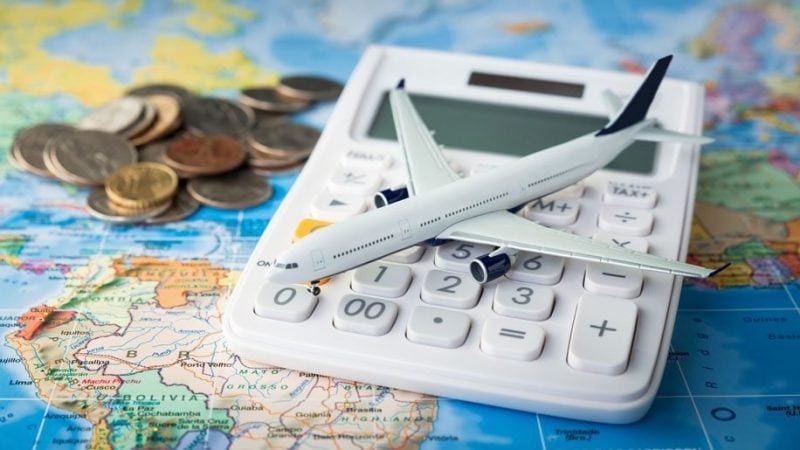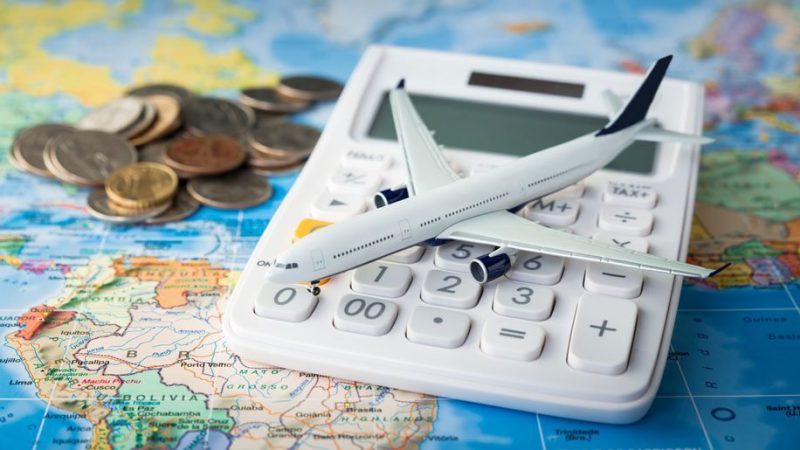Congress Makes Moves to Stop Rising Airline Fees
The FAIR Fees Act would limit fees for checked bags, ticket changes, and cancellations
November 26, 2019


A bill introduced – make that re-introduced – in Congress this week would put the kaybosh on niggling and annoying airline fees. But airlines feel it would hurt consumers in the long run.
Congressmen Jesús “Chuy” García (IL-04), Steve Cohen (TN-09) and Senator Edward J. Markey (D-Mass.) reintroduced the Forbidding Airlines from Imposing Ridiculous (FAIR) Fees Act, legislation that would prohibit airlines from charging fees, including cancellation, change, and bag fees, when they are not reasonable and proportional to the costs of the services actually provided.
The bill directs the Department of Transportation to review fees charged by airlines as, too often, airlines blindside travelers with sudden. exorbitant charges at the check in desk for what legislators deem to be basic aviation services. Airline fees have grown exponentially as a business practice over the last decade. The top ten airlines worldwide collected $35.2 billion in ancillary fees in 2018, up from just $1.2 billion in 2007. In the first two quarters of 2019, U.S. domestic airlines collected $2.8 billion and $1.4 billion in just baggage and reservation fees, respectively. With the busiest travel season of the year still ahead, both of these figures are on track to reach all-time highs by the end of 2019.
“During the last several years, the flying public has experienced ever-shrinking airline seats, a new fare called ‘basic economy’ so you can pay more for less, increased baggage fees, and sky-high change and cancellation fees, often in excess of the original ticket cost,” said Congressman Garcia.
“Airlines fees are as high as the planes passengers are traveling on, and it’s time to stop their rapid ascent,” said Senator Markey. “It should not cost more to change an airline ticket than the original cost of the ticket, period. Airlines should not bilk passengers just because they need to check a couple of bags. With the Thanksgiving travel season upon us, I am proud to reintroduce the FAIR Fees Act so we can put a stop to this price gouging and protect consumers traveling to see their loved ones. I thank Reps. Cohen and Garcia for their partnership on this important consumer protection legislation.”
In the House of Representatives, the legislation is also co-sponsored by Representatives Albio Sires, Eleanor Holmes Norton, Mark Takano, Jan Schakowsky, Bobby Rush, Barbara Lee, Rashida Tlaib, Bennie Thompson, Raúl M. Grijalva, and Gwen Moore. Senators Richard Blumenthal (D-Conn.), Sheldon Whitehouse (D-R.I.), and Ron Wyden (D-Ore.) are co-sponsors of the legislation in the Senate.
“Senator Markey’s FAIR Fees Act will help restore sanity and competition to the aviation marketplace,” said Sally Greenberg, Executive Director, the National Consumers League. “Eighty percent of routes are run by the four big carriers. Through unchecked mergers and acquisitions, the airlines have carved up major routes and no longer have to compete for our business. Congress must step in and act. We applaud Senator Markey’s Fair Fees Act because it will force the airlines to compete over actual fares and service, not over who can slam consumers with the most fees.”
Kevin Mitchell, Founder, the Business Travel Coalition notes that “Airlines are overcharging consumers with fees that are grossly disproportionate to the value of the service received and result in a windfall for airlines. ‘Exhibit A’ is change fees, where airlines charge $200 when the true cost of a change is 6 to 7 times lower, if not zero. This kind of unconscionable consumer price gouging is a textbook example of unfair methods of competition that underpin competition laws.”
However, airlines are not so keen to change their model. In an article by Gary Leff, in his airline news column View from the Wing, American Airlines CEO Doug Parker, explained that their business model is predicated on non-refundable tickets. “It’s a key way they sell at different prices to business passengers and leisure passengers. (Parker explained) If legislation limited change fees, they’d (the airlines) would have to stop allowing changes to tickets at all (the way they do now with Basic Economy fares).”
Counterarguments include concerns that such restrictions will make it more difficult for airlines to be profitable and rising seat costs would ensue.
Congressman Cohen is also the author of the Seat Egress in Air Travel (SEAT) Act, which is included in the base text of the FAA Reauthorization bill, that would require the FAA to establish minimum standards for space on passenger airliners, including the size, width and pitch of seats, the amount of leg room and the width of aisles needed for safe emergency evacuations within the FAA’s prescribed time limits.
The Tennessee congressman also introduced an amendment that would prohibit charging excessive airline ticket prices for outbound flights during federally declared states of emergency and locally mandated evacuation areas.
The FAIR Fees amendment is identical to a bipartisan amendment in the Senate FAA reauthorization bill introduced by Senators Edward Markey and Roger Wicker. It has been endorsed by National Consumers League, Consumers Union, Consumer Action, Consumer Federation of America, U.S. Public Interest Research Group, Travelers United, Airlinepassengers.org, Business Travel Coalition, National Association of Airline Passengers, and Travelers’ Voice, Flyersrights.org, and Airlinepassengers.org.




